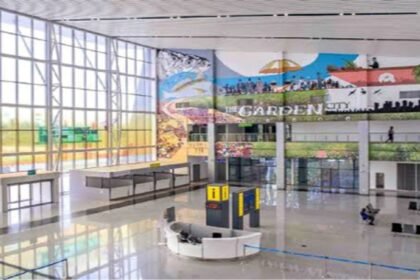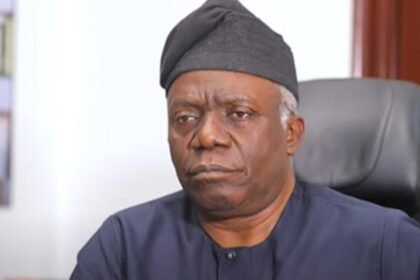While many Nigerians have heard of the P&ID vs. Nigeria saga, few understand the depth and complexity of this decade-long legal dispute. Since 2012, the story has been shrouded in conflicting narratives, but at its core lies a gas processing agreement gone terribly wrong; one that nearly cost Nigeria $11 billion. This special report unpacks the key facts, the players involved, and how Nigeria eventually turned the tide in its favour.
The Genesis of the Gas Deal
In January 2010, Process & Industrial Developments (P&ID), an engineering and project management firm founded by Irish businessmen Michael Quinn and Brendan Cahill, signed a 20-year Gas Supply and Processing Agreement (GSPA) with Nigeria’s Ministry of Petroleum Resources. Under the agreement, Nigeria was expected to provide wet natural gas, free of charge, via government pipelines to a facility that P&ID would construct. In return, P&ID would process the gas into lean gas and supply it back to Nigeria at no cost for electricity generation.
The deal, governed by Nigerian law, included an arbitration clause that required unresolved disputes to be settled in London. The agreement appeared to be mutually beneficial and was scheduled to run until 2030. However, by 2012, nothing had materialized on the ground, neither the promised facility nor any gas supply. This stalemate laid the foundation for a protracted and high-stakes arbitration battle.
Arbitration Begins and Allegations Emerge
In August 2012, P&ID initiated arbitration proceedings, claiming that Nigeria had defaulted on its obligations by failing to supply gas. Nigeria, in response, argued that P&ID never built the necessary infrastructure to receive the gas, making supply impossible. Nevertheless, the tribunal in London assumed jurisdiction and pressed on with the proceedings, marking an official start to the P&ID vs. Nigeria saga that will take over a decade to arbitrate.
In 2015, Nigeria proposed an $850 million out-of-court settlement, but talks broke down. The following year, the tribunal ruled that Nigeria had breached the agreement. By January 2017, Nigeria was ordered to pay $6.6 billion in damages for lost profits, with an annual interest rate of 7%, which pushed the total to a staggering $11 billion by 2023.
Initially, Nigeria showed little urgency in responding to the judgment, blaming a change in administration. A belated attempt to seek an extension was denied. Nigeria also tried to nullify the award through its own courts in Lagos, but this proved futile, as London remained the agreed venue for arbitration enforcement. In 2018, P&ID began the process of enforcing the award, targeting Nigeria’s foreign assets.
By 2019, the English High Court rejected Nigeria’s plea that the judgment was excessive. However, new hope emerged in 2020 when evidence obtained from U.S. banking records revealed that the entire agreement had been built on fraudulent foundations.
A Landmark Legal Victory
On October 23, 2023, the English High Court, presided over by Justice Robin Knowles, delivered a historic judgment that overturned the $11 billion arbitration award. The court found that P&ID had obtained the GSPA through bribery, particularly by paying off Grace Taiga, a former legal director at Nigeria’s Ministry of Petroleum Resources. The judgment also revealed that P&ID had accessed over 40 privileged Nigerian legal documents during arbitration, thereby tainting the entire process.
The court concluded that P&ID’s actions constituted serious fraud and breached public policy, causing significant injustice to Nigeria. This decision was hailed as a major victory for Nigeria, not only for avoiding a devastating financial penalty but also for exposing systemic corruption behind the scenes.
The Fallout and Additional Rulings
The fallout from the ruling was extensive. In December 2023, Justice Knowles ordered P&ID to pay approximately £43 million in legal costs to Nigeria. The company’s appeal against this order was dismissed in July 2024. The repercussions continued into June 2025, when British lawyer and P&ID director Seamus Andrew lost his appeal against findings of misconduct related to his access to Nigeria’s confidential documents. Andrew was found to have had a potential $3 billion stake in the outcome of the arbitration.
These rulings not only vindicated Nigeria’s legal strategy but also exposed weaknesses in international arbitration. Justice Knowles warned that such fraudulent conduct could damage the reputation of the arbitration process itself. While Nigeria also alleged complicity among some of its officials, the court found insufficient evidence to support further claims on that front.
Legacy and Lessons Learned
What began as a straightforward gas deal evolved into one of the most significant legal and financial disputes in Nigeria’s history. While the Nigerian government was initially criticized for its slow and ineffective response, the eventual outcome highlighted the power of legal perseverance and evidence-based litigation.
The P&ID vs. Nigeria saga serves as a cautionary tale for all parties involved in international contracts and arbitration. It underscores the critical need for due diligence, transparency, and robust legal protections. Though the journey was riddled with challenges, Nigeria’s eventual victory marked a turning point, both for the country’s financial sovereignty and for global discussions around fraud and arbitration ethics.







